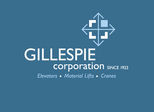- Glenn Siegel
- Apr 28, 2022
A fabulous April 22 concert by the Caroline Davis Quintet concluded an eventful two-week sojourn for this writer. On April 10, for the first time in my career, I missed a concert I produced. Home recovering from a mild bout of COVID, with the equally ill Priscilla Page by my side, producing duties fell to Jason Robinson and other members of the Jazz Shares board of directors. By all accounts, the concert by bassoonist Sara Schoenbeck and pianist Wayne Horvitz was thoroughly enjoyed by the 55 folks who filled the barn at the Institute for the Musical Arts. After multiple postponements because of the pandemic, it was ironic that the virus prevented me from experiencing it.
Then on, April 21, the final curtain came down on the Magic Triangle Jazz Series, the upstart annual event I helped found in 1990. The Series was a collaboration between the then-vibrant student and community radio station, WMUA-FM, and the University’s Fine Arts Center. It’s first home was Hampden Theater, a professionally staffed, jewel of a black box theater in the southwest residential area of the University of Massachusetts Amherst, shuttered in 1998. The Magic Triangle (and its sister program, the Solos & Duos Series) produced 151 concerts in its lifetime, the last one on Thursday at Bowker Auditorium with a performance by Adam Rudolph’s GO: Organic Orchestra and Brooklyn Raga Massive. I was moved by the outpouring of appreciation for all the music we have brought to Amherst over the years, and we were rewarded with a transcendent performance by Rudolph’s band of 30, which included large percussion, flute and string sections. With assurance and a sense of adventure, Rudolph’s ensemble pointed us toward a musical future influenced by Indian, Latin and jazz improvising traditions.
Which brings us to Friday’s concert at the Community Music School of Springfield, featuring alto saxophonist and composer Caroline Davis. Her group: Jonathan Finlayson, trumpet, Julian Shore, piano, Chris Tordini, bass and Alan Mednard, drums, stopped in Springfield on their way home from a residency at St. Lawrence University in Canton, NY.
Their performance featured material from last year’s release, Portals, Volume 1: Mourning (Sunnyside), dedicated to Davis’ late father. The music was dense, but not heavy, the compositions complex, but lyrical. Modern harmonies and precise rhythmic shifts were everywhere, leavened by a focus on melody and form. The young veteran, Jonathan Finlayson replaced Marquis Hill for our Jazz Shares concert; the rest of the band is on the record. (The recording also includes a well-utilized string quartet.)
Despite the exacting nature of the compositions, the band was relaxed on the bandstand and off. Over a homecooked meal before the show, Tordini recounted a tough early gig at the Newark Airport, which necessitated a subway ride, to a PATH train, to a car ride, all for the pleasure of playing for a distracted airport restaurant audience. Not to be outdone, Shore reminisced about a gig that required a plane ride from New York to Cleveland for an annual gathering honoring police who died in the line of duty. In a giant arena, thousands of under-rehearsed amateur bagpipers and snare drummers (along with twirling young girls in identical dress and wigs), created such a din that Shore and the rest of his rhythm section spent the performance with their hands over their ears. Nobody seemed to notice they weren’t playing.
The storytelling continued on stage, as Davis shared her experiences creating this beautiful body of work from her loss. The music was full of drama, with a soaring quality that was taut, expressive and profound. This was my first opportunity to hear Mednard, a young drummer who plays with Jeremy Pelt and Ben Allison, among others. He read down the heads with the skill of a classical percussionist, then proceeded to fill and accent his way through the evening with riveting clarity. He never got a chance to solo, but was so on point all evening, it hardly mattered.
Caroline Davis gives me confidence about the future of our music. She is well prepared and serious about her craft. Before the gig I saw her off to the side meditating, her way of “getting right” before engaging in a vital activity. The facility in her playing, the emotional impact of her compositions, and her easy command as a bandleader, all point to a musician poised to make a real contribution in the decades ahead.



























